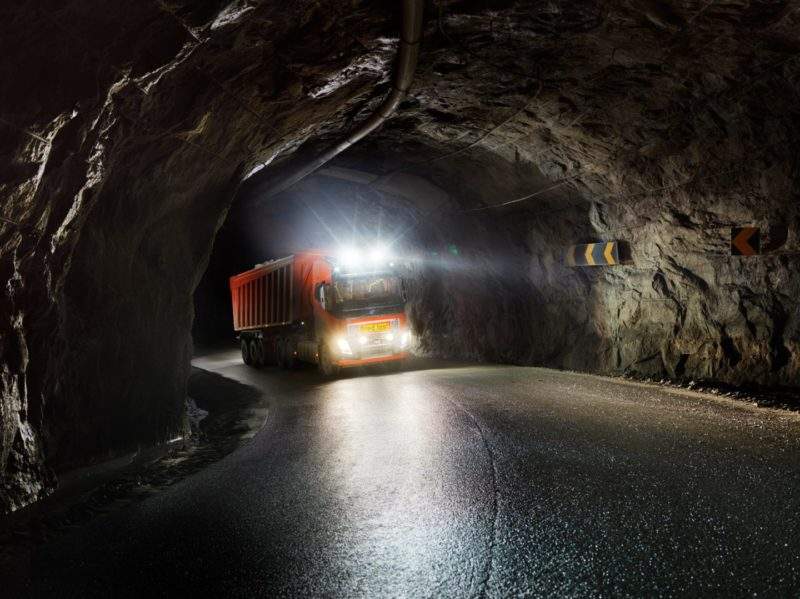
Volvo Trucks has announced a landmark deal to supply its self-driving trucks to a Norwegian mine. However, the company isn’t selling the autonomous vehicles, but renting their services.
Announced today, the agreement with Brønnøy Kalk AS will see six autonomous Volvo FH trucks transport limestone from the mine to a crusher 5km away. The company has already tested the service, and full operations will commence by late 2019.
It’s not the first time that Volvo Trucks’ autonomous vehicles have been used for this type of industrial application – the vehicles are in use in other mines, refuse collection and sugar cane harvesting – but this is a first for how they are being supplied.
While Volvo Trucks has previously sold the vehicles to the company in question, this agreement is for the specific service carried out, with ownership of the vehicles remaining with the manufacturer.
Brønnøy Kalk therefore has purchased a total transport service, not a vehicle, and pays per tonne delivered.

US Tariffs are shifting - will you react or anticipate?
Don’t let policy changes catch you off guard. Stay proactive with real-time data and expert analysis.
By GlobalDataPost-ownership comes to self-driving trucks
The advent of self-driving vehicles is seeing the rise of post-ownership solutions, which build on the highly established software-as-a-service (SaaS) model.
This approach has become widely recognised as the primary way driverless vehicles will be rolled out for consumer applications, because it dramatically lowers the barrier to entry and maximises the use of the vehicles.
Instead of purchasing a car, users will pay either a monthly fee for a fixed or unlimited number of rides or use a pay-as-you-go service in the same manner as ride-hailing service Uber. Key players in the self-driving car race are already developing services for this purpose, including Waymo and General Motors.
As a result, it is thought that car ownership will decline from 2034 as it ceases to be the standard approach for most users.
However, while this approach is becoming accepted in cars, among industrial vehicles it is far more novel, making this agreement from Volvo Trucks extremely notable. But with low barriers of entry for companies, it is likely that if this project proves successful, far more will follow.
And for Volvo Trucks, this is a chance to lay claim to an emerging service type.
“We are proud to be able to present an autonomous solution which will meet the challenges of our customers both in terms of safety, reliability and profitability,” said Claes Nilsson, President of Volvo Trucks.
“The global transport needs are continuously changing at a very high pace and the industry is demanding new and advanced solutions to stay ahead. Our aim is to be the leader of the development of products and services to respond to these demands.”



